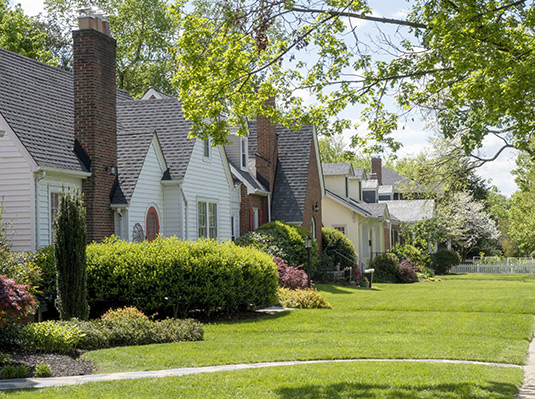
Not only can insurance save you from financial ruin, but it can also give you peace of mind knowing that your family is protected from the repercussions of a wildfire. Being knowledgeable about the dangers of wildfires, securing insurance to cover wildfire damage, and taking preventative steps will go a long way in reducing the possible impact of fires on your life.
Wildfire Risk Levels
Nearly all homeowners insurance policies will come equipped with coverage for fires, including wildfires. If you live in an area that is prone to wildfires, this can become slightly more complicated. Most insurance companies will assess a home's likelihood of being affected by wildfire by looking at the property's FireLine Score. These scores will range from a score of 0, which represents a minor wildfire risk, to a score of 30, which is an extremely risky area when it comes to potential wildfires.
Getting Coverage for Wildfire Damage
If your home is located in a lower-risk area, finding coverage for wildfire damage is very simple. It will be covered on any standard home insurance policy. If you are in one of the higher FireLine areas, this can become a little trickier. Most home insurance companies understand that it is very risky to insure homes for fire in these areas, and they may opt to deny coverage for these homes. No matter how high the FireLine score is, there is always an option that can be found to protect homeowners from the devastation of wildfires. This may involve having a separate policy to cover fires, or going to a company that specializes in providing coverage in these locations. Either way, it will likely be relatively pricey to secure insurance, but with the level of risk associated with living in these places, the coverage is worth it.
Tips for Preventing Wildfires
There are several things that you can do to help protect your home if you are in a fire hazard area clear outgrowth, brush, and foundation plants around your immediate home.
- Be sure to create a defensible area around your home with an area of 30 -100 feet.
- Clear out or thin highly combustible shrubs and trees like Eucalyptus trees, Creosote bushes, Junipers, and Pine.
- Avoid storing firewood within 30 feet of your home or other combustible material.
- For the home structure, cover exterior attic vents and under-eave vents with metal wire mesh no larger than 1/8 inch to keep embers out of the interior of your home.
- Having a non-flammable roof made of asphalt clay tile or concrete slate will also help. Wood shake roofs are extremely flammable & should be looked to be replaced in high-fire areas.
What to do if Your Home is Affected by Wildfire
If your home has been affected by a wildfire, it can be emotionally devastating and difficult to know what steps to take next. Here are some basic steps to take to remain as safe as possible:
- Ensure the safety of you and your household members. Remember that the physical safety of yourself and your family is irreplaceable, while property and material objects are.
- Keep your insurance policy information like your home and auto insurance policy numbers and the carrier’s contact information readily available in case you have to file a claim.
- Pay attention to any government-suggested or required evacuations. The professionals know best. If they are advising an evacuation, it is best to do so sooner rather than later to avoid fuel shortages and traffic jams.
- Have a Wildfire Survival Plan ahead of time. This should include your family's evacuation plan, an emergency contact list, and any valuables that you plan to take with you if you must leave. We recommend packing a traveling box with important documentation like birth certificates, passports, etc.
- Keep inventory of personal property before a loss and document any damages afterward. You can do this by videotaping items and rooms of your home in the event you have to file a claim and need to provide proof to your claims adjuster. After it is safe to return to the home, take pictures as soon as possible and keep any receipts from purchases related to your evacuation or relocation.
Tips for Preventing Wildfires
There are steps individuals can take to help prevent wildfires. First, it is important to regularly clean up around your home: Remove dead tree limbs, fallen branches, and other debris. Pay special attention to areas like patios or decks. The next tip is to check your local fire codes and ordinances. These regulations exist for good reason; they will often restrict the number of flammables that are allowed in a given area, as well as other general regulations on burning. Finally, always use caution when dealing with lighters or matches, and never leave any type of fire unattended. By following these simple tips you can work towards preventing wildfires and ensuring the safety of yourself, as well as your community.
Though wildfires are often thought of as natural disasters beyond our control, there are steps we can take to lessen the risk they pose to us and our property. By being informed and taking proactive measures, we can help prevent future fires from raging out of control. And if the worst should happen, having a plan, and conclusive insurance gives you some peace of mind that you'll be able to recover financially. So don't wait until it's too late, speak to your insurance agent to be sure that you are in a good place when it comes to coverage for wildfires.
The contents of this article are for informational purposes only. You should not act or refrain from acting based on this information without first consulting a Goosehead licensed agent at [email protected]. We disclaim all liability for actions taken or not taken by you based on the contents of this article which is provided "as is." Goosehead makes no representation that this content is error-free.


